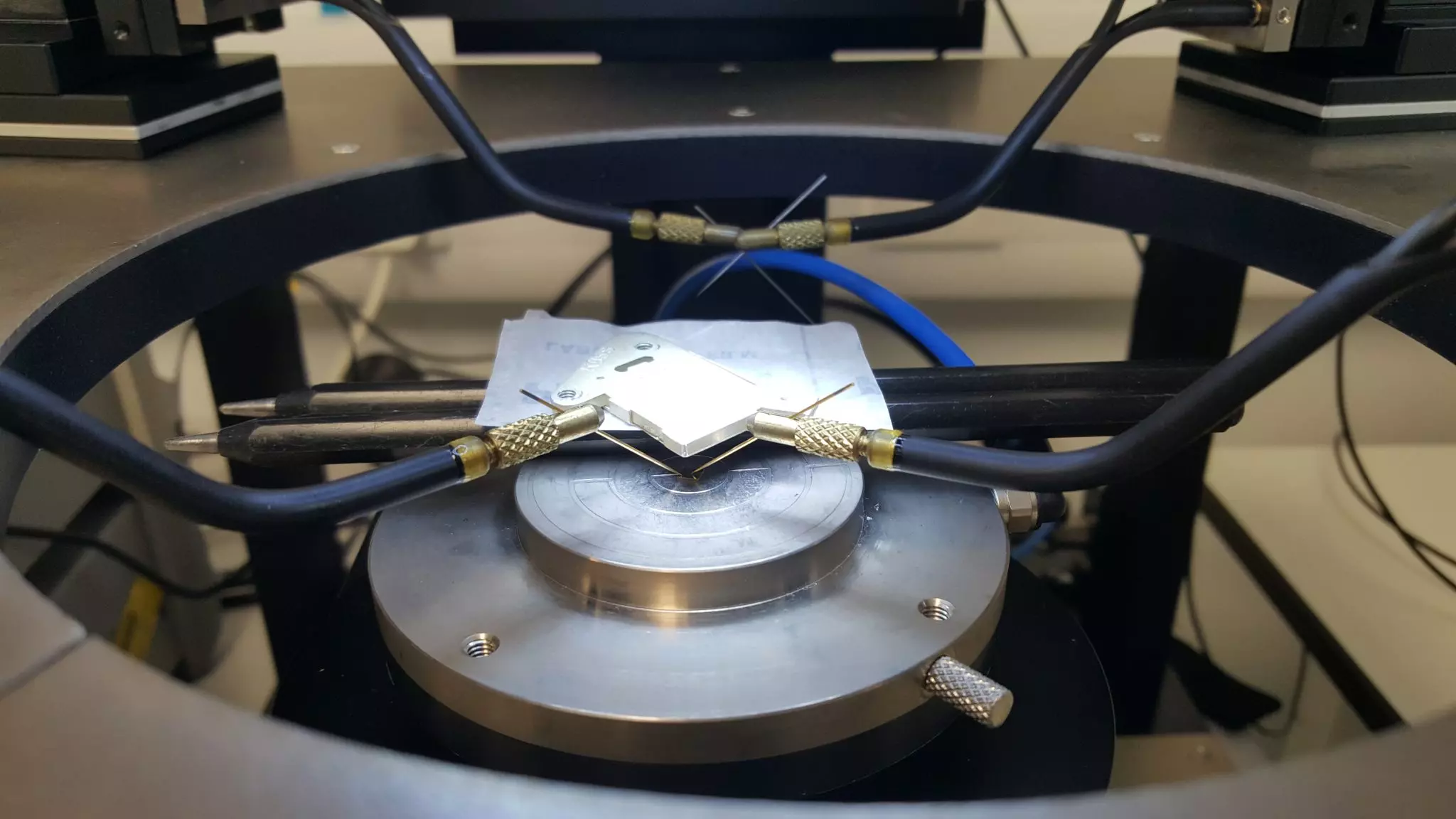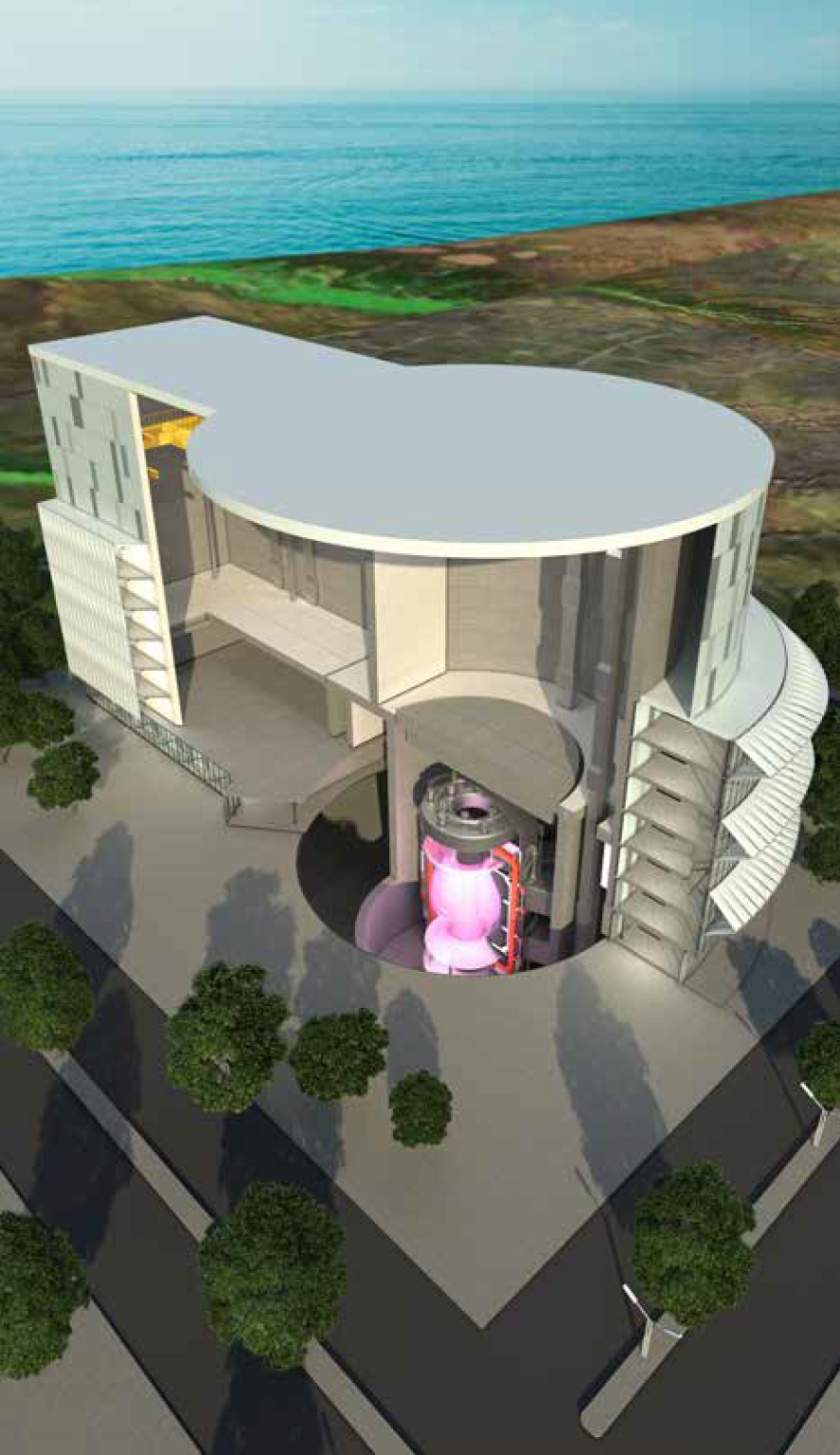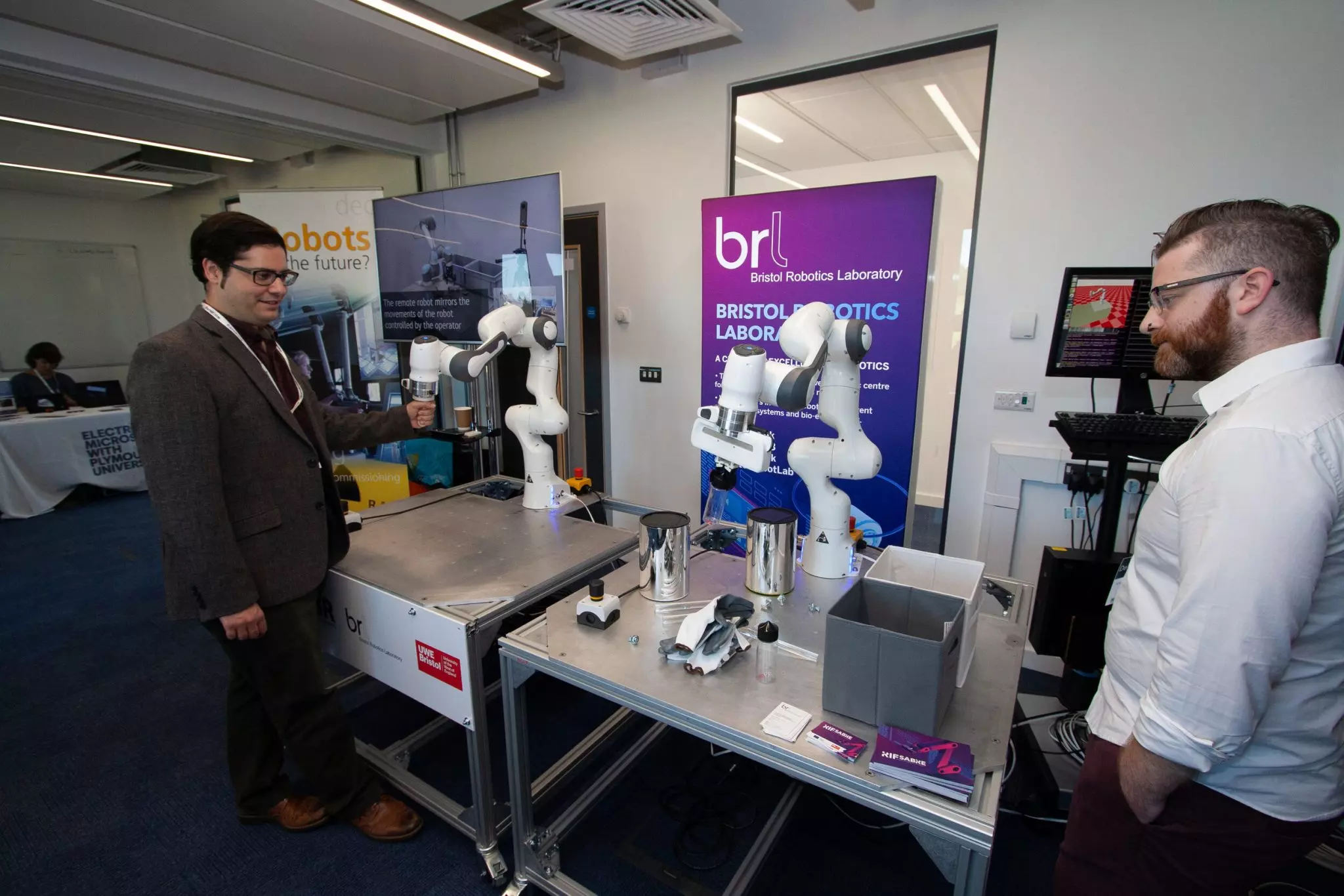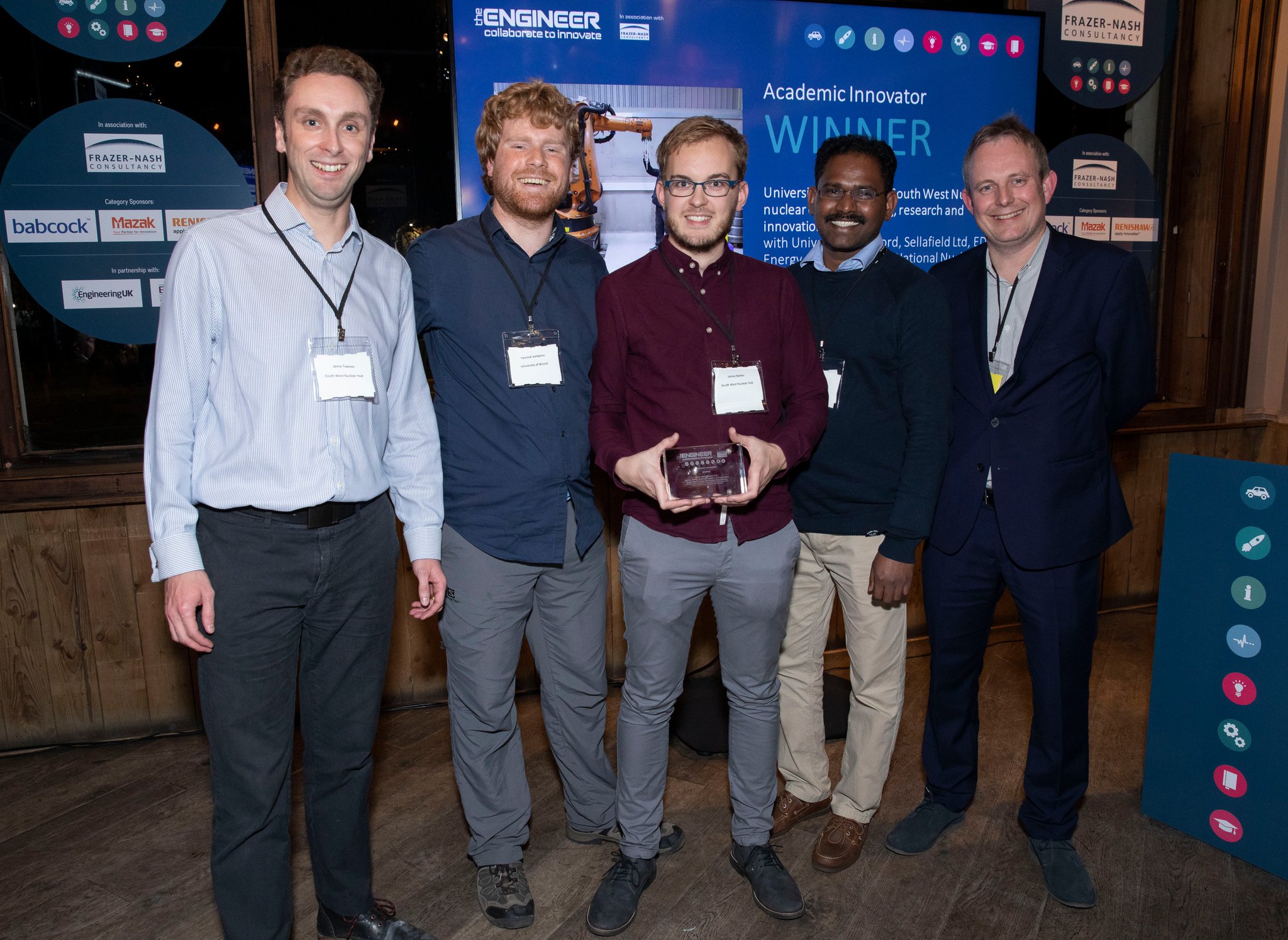The South West Nuclear Hub (SWNH) is helping to realise the zero-carbon economy of the future. its alliance of academic, industrial and governmental institutions in the south west is pursuing research, innovation and skills in support of nuclear energy for electricity and other high-value products such as heat and hydrogen. The joint Nuclear Research Centre between the Universities of Bristol and Oxford was established in 2011 that united a community of around 100 nuclear energy researchers supporting the safe operation of current and future generation nuclear systems.

In 2013 the Government’s Witty review ranked the University of Bristol number one in the UK for nuclear research impact. Building on this significant recognition, the South West Nuclear Hub opened in September 2016 with a physical base, the David Smith Building, at the University of Bristol. From here it leads and coordinates the regional effort in nuclear research, teaching and innovation.
The Hub is a membership organisation and since 2016 it has attracted major players in the sector including EDF, Cavendish Nuclear and Nuclear Advanced Manufacturing Research Centre to join the network.
Just a Quick Note:
InnovationsOfTheWorld.com has partnered with Trade License Zone (TLZ) to support global innovators looking to expand internationally. Take advantage of the UAE’s Free Zones—enjoy streamlined setup, low corporate taxes, and a strategic gateway to the Middle East and beyond.
Get Your UAE Free Zone License Fast & Easy!By uniting academic and industrial research, the SWNH enables innovation between those organisations that are leading the development of current and future technologies.
According to Professor Tom Scott, Co-Director of the South West Nuclear Hub, “We bring together a unique pool of specialist talent and expertise that can be tapped into by industry; in turn industry helps us to ensure that our education and research stays at the cutting edge and has a positive impact on society.”
This is not limited to large companies already in the supply chain; the Hub’s free-to-join Innovation Membership category is offered to companies seeking to enter the nuclear technology development pipeline, such as start-ups, SMEs, University spin-outs and sector-jumpers.
The SWNH is growing this powerful innovation network to facilitate innovation in the nuclear supply chain, and provide opportunities for companies in the region to deploy products with experienced collaborators in the nuclear supply chain. Coupled with enhanced access to academic expertise and graduate talent, the SWNH hold a key position in enabling innovation in what is often perceived as a conservative industrial sector.

Case study: Diamond Batteries – recycling nuclear waste to create energy
A team of physicists and chemists from the University of Bristol are providing a solution for the problem of nuclear waste. They plan to do so by recycling irradiated graphite from nuclear reactors to generate ultra long-lasting, low level power sources that could last anywhere between 12 to 5000 years, see image above of the prototype devices.
Spin-out Arkenlight Ltd. has been created to make this commercially viable, and sites being decommissioned in the South West like Berkeley or Hinkley Point B could provide the materials for the first commercial diamond batteries.
Such is the South West Nuclear Hub’s role in innovation, it has received external recognition of its work. In 2018 it was named Academic Innovator winner in The Engineer Collaborate to Innovate Awards. The winning bid showcased collaborative projects developing radiation tolerant ‘diamond detectors’, pipeline investigating devices and seismic testing of reactor cores
The South West is home to the only current nuclear new-build site in the UK, at Hinkley Point C in North Somerset. It is also as the second largest region for nuclear sector employment, as shown in the 2020 Nuclear Industry Association Jobs Map. Accordingly, there is an estimated £50bn of investment in a range of nuclear projects that will be dispensed within 75 miles of Bristol.
Bristol and Filton are hotspots for nuclear industry, with the EDF New Build Headquarters and the new EPR Design Centre employing significant number of technical experts in the city. The wider region boasts a unique combination of specialist knowledge in high temperature reactor operation, at EDF’s technical headquarters in Gloucester and consultancies like Frazer Nash and SNCL Atkins, plus nuclear project delivery suppliers like Framatome and Cavendish Nuclear.
With many other high-value engineering clusters sited in the region such as aerospace, defence, digital, electronics and photonics, the SWNH sits in a unique position to link capabilities across sectors to ensure that nuclear energy projects benefit from the widest pool of innovation.

With this globally competitive nuclear research and innovation ecosystem, the Hub aims to coordinate applied research outputs from Universities so that they form part of a complete regional technology development pipeline.
Beyond the completion of Hinkley Point C, which is due to power 6 million homes when it comes online later this decade, the next generation of advanced nuclear technologies will be needed for a net-zero carbon future.
There are several areas in which the Hub’s innovative ecosystem aims to be leaders:
Robotics: Tackling challenges in decommissioning, fusion, accident recovery and inspection of facilities through the University of Bristol’s National Nuclear User Facility and connecting to the Bristol Robotics Laboratory at the University of the West of England.
Sensors, mapping and characterisation: Applying new technologies and those from other sectors to the construction, maintenance and decommissioning of complex nuclear assets.
Digital innovation: Building on the overlap between the creative and industrial sectors to enable improvements in construction, maintenance and decommissioning of nuclear facilities as well as training the nuclear workforce.
Fusion energy: With the UK’s aim to develop the world’s first commercial fusion power plant by 2040, SWNH Researchers are transferring knowledge of high temperature reactor engineering to this exciting new technology.
Case study: High Temperature Engineering knowledge transfer – fission to fusion
he target of developing a prototype fusion energy plant by 2040 requires the application of knowledge from nuclear fission, particularly in areas such as structural integrity and high temperature engineering.

The University of Bristol has long conducted research in these areas for fission power plants; the Solid Mechanics Research Group in the Faculty of Engineering has partnered with EDF on the High Temperature Centre since 2008. As a result it has substantial expertise in the behaviour of materials in harsh environments, which is vital knowledge needed for the development of a fusion power plant.
All of this research will be crucial to deliver the UK’s target to comprehensively decarbonise its energy supply by 2050, explains Professor Tom Scott: “The world needs clean, reliable and secure nuclear energy if it is to avoid the growing climate crisis.
In the UK, and specifically in the South West, we have globally unique expertise in fusion and high temperature fission technology that give us a real chance to be the first in the world to build a working fusion power station. It is no longer ‘fifty years away’, it could be here in time to contribute to a carbon neutral economy by 2050”.
To find out more about how your organisation can join our Innovation network, and support the drive for a net-zero energy future, get in touch:
southwestnuclearhub.ac.uk
















